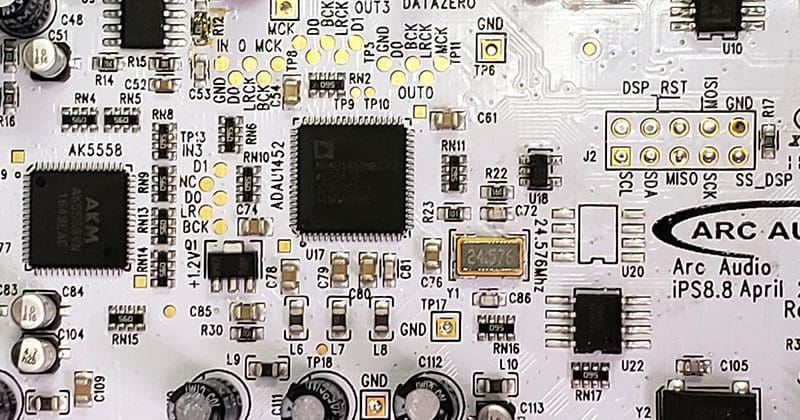Having a digital signal processor in your car audio system is a necessity if you expect your music to sound accurate. We’ve told you many times that speakers are essential to getting great sound. While 100% true, so is the need to calibrate the output of those speakers to work with the acoustics of the environment. Proper equalizer configuration is the only way to make your audio system sound genuinely realistic.
In this series of articles, we’ll look closely at the features included in a digital signal processor and explain how each of those functions improves the performance of your mobile audio system. We’ll also give you some tips to help you find a retailer who has the tools and training to optimize your stereo efficiently and reliably.
What Is Signal Processing?
For decades, car audio systems used analog crossovers and equalizers with sliders or knobs to allow installation technicians to configure and calibrate the signals going to each amplifier. Tens of thousands of hours have been spent tweaking AudioControl, Phoenix Gold, Precision Power and Image Dynamics analog equalizers over the years.
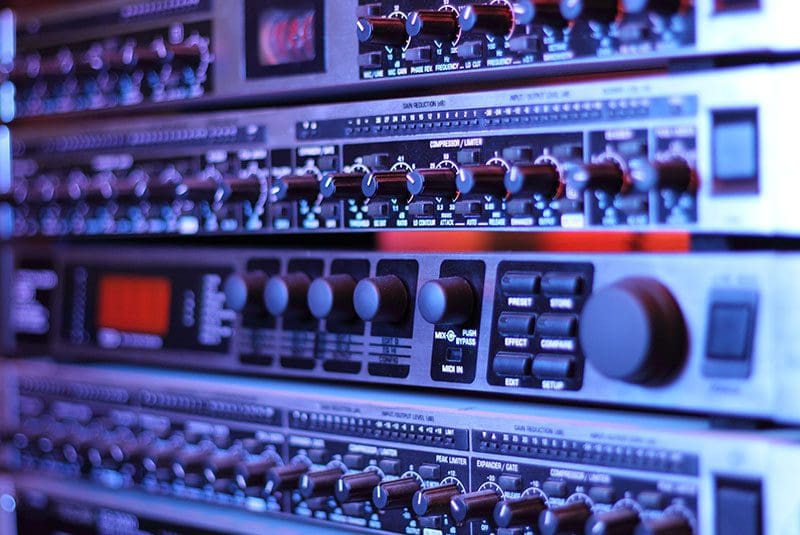
The problem with analog processing is its accuracy. The values of resistors, capacitors and potentiometers in analog circuits varies by temperature and sometimes by age. Another problem is accessibility. Since these devices are somewhat large, tuning a vehicle typically involves repeated trips from the driver or passenger seat to the trunk to make adjustments. This dramatically increases the time it takes to configure and calibrate the system. Finally, there is the issue of repeatability. If you want two different configurations, you can’t reliably change the settings, then hope to return them to their original configuration and have the system sound exactly the same each time. Potentiometers are by nature, nearly infinitely variable. Even a difference of only a few degrees can dramatically change the value of an EQ or filter setting.
According to the definition provided by Analog Devices (a company that manufactures DSP integrated circuits), a digital signal processor (DSP) is a device that takes real-world signals like voice, audio, video, temperature, pressure or position that have been digitized and mathematically manipulates them. A DSP is designed to perform mathematical functions like “add,” “subtract,” “multiply,” and “divide” very quickly. Many companies manufacture DSP chips, and some car audio product manufacturers will note the specific unit they use. Products like Blackfin, SHARC, Sigma from Analog Devices, Symphony from NXP and Velvet Sound from Asahi Kasei Microdevices get name-dropped quite frequently.
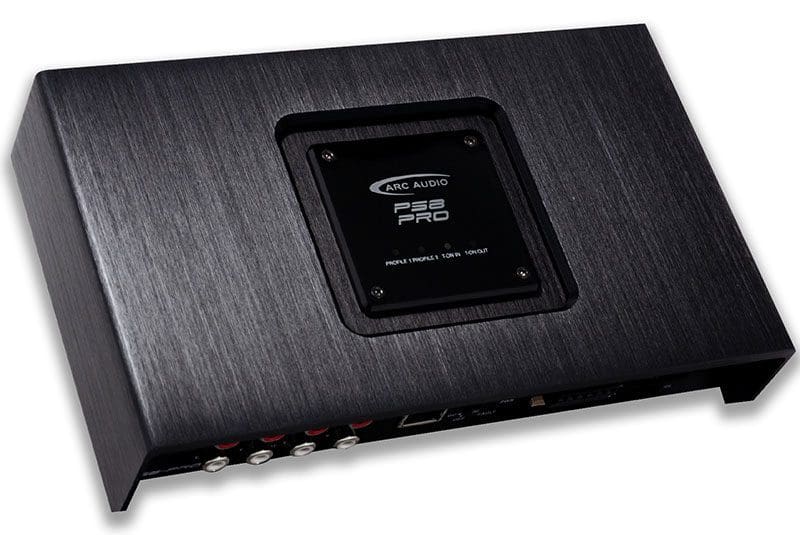
In a DSP, the interface between the person configuring the processor and the system is computer-based. Once a system is calibrated, the settings can be saved to a file on the computer. Every time the processor turns on, the software applies the exact same signal modifications. The results are repeatable and predictable.
Processors with adequate memory can store multiple presets. You can have a system calibration for use when only the driver is in the vehicle, then another for when the car has people in the driver’s and passengers’ seats. You may even want a third calibration that raises the crossover points a bit so you can play the system at higher levels without fear of damaging speakers.
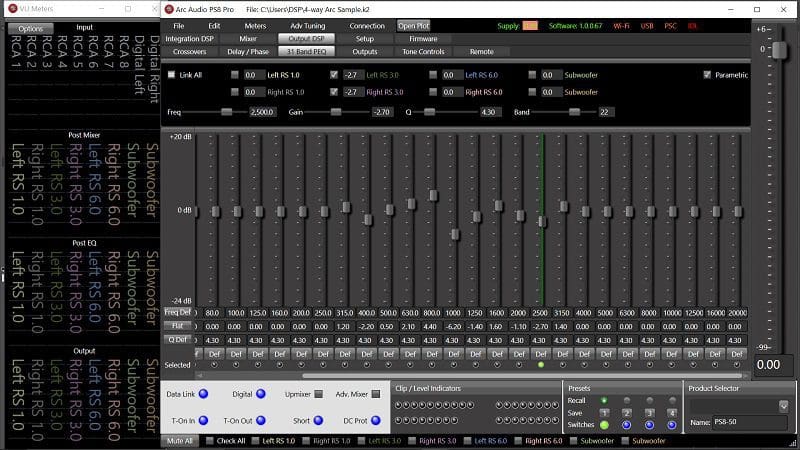
When to Use a DSP in a Car Audio System
If you want your music to sound realistic, then you need some form of equalizer in your mobile audio system. Praying that a new set of speakers will magically compensate for the reflections and cancellations in your specific vehicle is a fool’s errand. They won’t, and they shouldn’t. To compensate for the acoustics of the vehicle, you need a DSP with at least 30 bands of graphic equalization on both the left and right channels. You can get away with fewer bands if you are using more channels. For example, 10 to 15 bands of EQ are more than enough on a woofer or a midbass channel. We’ll explain equalizer functions in detail in Part 4 of this series.
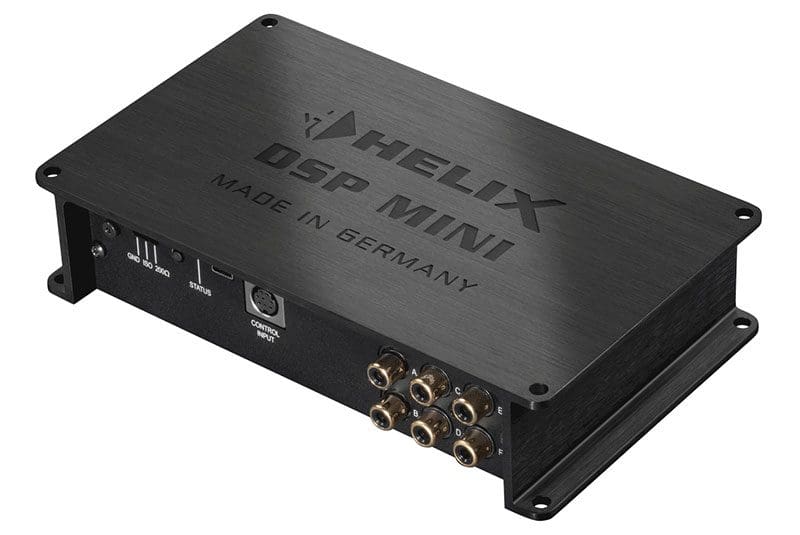
Most car audio systems use a dedicated amplifier for the subwoofers and a separate amp for the midrange and high-frequency speakers. Getting the crossover settings between these amplifiers right is crucial to ensuring the bass and midbass in these systems sound good. If the system is more elaborate, it may have dedicated amplifier channels for the tweeters, at which point the DSP needs another set of filters. If you have midrange and midbass speakers, then you need yet another set of amp channels and filters. Most high-end car audio systems use a four-way system with dedicated subwoofers, midbass, midrange and tweeter channels. We’ll explain more about crossovers in Part 3.
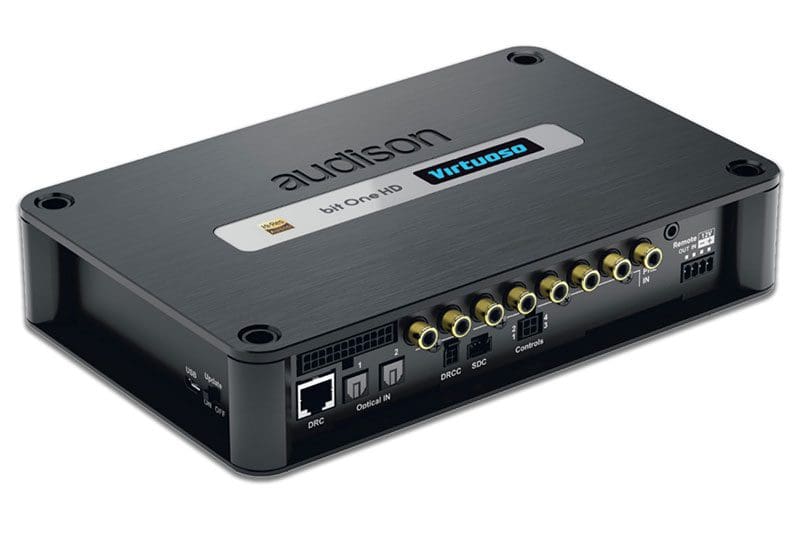
The technician setting up your vehicle will likely want to apply some delay to the speakers closest to the listening position, or delay the front and rear speakers so that the sound from them arrives at the same time as sound from the subwoofer. We’ll explore signal delay details in Part 5.
Beyond equalization, crossovers and signal delay, many processors include signal mixers to combine signals from different channels or sources into something that can be used in the upgraded system. Finally, companies like ARC Audio, Audison and AudioControl have processors that will work with the ADS Maestro AR amplifier replacement module to allow your installer to integrate your system directly to your factory radio while maintaining proper mixing of warning chimes and navigation prompts. We’ll look at this more in Part 2.
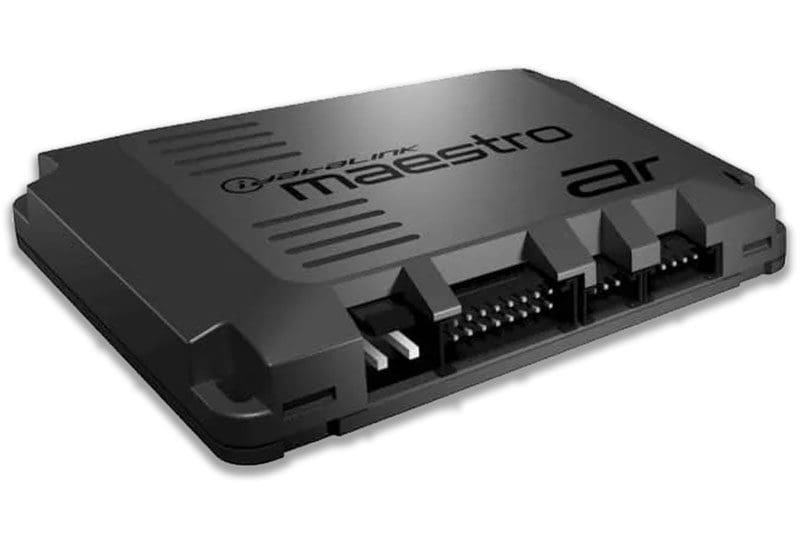
When Not to Use a DSP
There are cases where you shouldn’t invest in a digital signal processor. If your installation technician doesn’t have a high-quality microphone to calibrate the system, there is no way to make the car sound good. Likewise, if the technician hasn’t installed several processors in the past, they likely don’t have a defined process in place that will ensure that your vehicle will sound good. Since you’ll be paying for the calibration process, you should know how long it’s going to take before work begins.
Speaking from experience, configuring basic settings like crossovers, signal delay and output levels within a DSP is easy. The process of equalizing each speaker in the vehicle and knowing how to deal with the anomalies that pop up can be much more challenging. It’s crucial that the technician you choose to calibrate your system understands what he or she is doing. They should have experience tuning many systems in the past. While tuning isn’t an art form, it is a complex process that requires formal training and hours of practice. It’s not something that can be figured out on the fly or that can be done by ear.
Upgrade Your Car Audio System with a Digital Signal Processor
If you’re interested in having your car audio system upgraded with a digital signal processor, start your shopping process by auditioning systems that have been tuned by the technician who will be working on your vehicle. You want to know that your audio investment in an audio system upgrade will yield similar results. Not everyone is well-versed in calibrating digital signal processors – even some technicians who are great fabricators.
As always, we suggest you start with a local specialty mobile enhancement retailer. In this case, it might be beneficial to shop around a bit. Listen to as many demo vehicles as are available. Listen to the same music in each one. Learn what you like, then talk to the Product Specialist you are dealing with about those criteria so they can be recreated in your vehicle.
This article is written and produced by the team at www.BestCarAudio.com. Reproduction or use of any kind is prohibited without the express written permission of 1sixty8 media.

